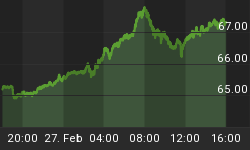Social unrest is an extremely rare event in China, where “social stability” is practically mandated. That hasn’t stopped retail investors, vendors and even employees of Evergrande, China’s second-largest property developer, from gathering outside the company’s offices to demand repayment of loans and other financial products.
Expanding by borrowing aggressively in the past two decades, Evergrande has grown into a huge conglomerate that covers everything from bottled water and movie production to electric cars and even a soccer team.
That path has turned it into one of the world’s most indebted real estate firms with $300 billion in liabilities. Recently, the company’s management made it clear that it doesn’t have the means to pay all of its creditors on time. It is due to make several interest payments for its bonds starting today.
The stock crashed earlier this week, and then just as suddenly started to climb again after Evergrande said it would meet a $35.9-million interest payment on an onshore bond due today, after cutting a last-minute deal. The company is also due $83.5 million today and another $47.5 million in interest next week, and investors still have no idea what will happen.
On the other hand, according to The Wall Street Journal, Beijing is telling local governments to brace for possible “economic and social ramifications” if Evergrande goes bankrupt in the coming weeks.
Over the past year, the company’s stock is down 70%, with bonds trading at record lows (below 50 cents on the dollar). Its debt has been downgraded and banks are refusing to lend it more money. The million-dollar question now is whether the government will bail it out.
Some experts are warning that an Evergrande collapse could have systemic impact on a level with the fall of the Lehman Brothers in the U.S.. But many also are optimistic that it won’t come to that.
What traders want to know is whether this is a buy right now. It’s a buy still (in the short term) if the government is going to bail it out. If not, investors probably missed the boat with yesterday’s unexpected 46% gains.
More broadly, the ramifications are likely quite significant.
Jim Chanos, the short seller who predicted Enron’s collapse, said Evergrande’s collapse could halt the real estate boom that’s driven economic growth in China.
"In many ways you don’t have to worry that it’s a Lehman-type situation but in many others, it’s far worse because it’s symptomatic of the whole economic model and the debt that’s behind the economic model," he said.
S&P Global Ratings seems to think that the Chinese banking sector can handle an Evergrande default without major market disruption; however, credit analyst Ryan Tsang cautioned investors to be “mindful of potential knock-on effects”.
“We believe Beijing would only be compelled to step in if there is a far-reaching contagion causing multiple major developers to fail and posing systemic risks to the economy.”
Nearly 20 years ago, analysts were sounding the alarm bells about Evergrande’s business practices, but given Beijing’s recent track record with some of its biggest companies, rather than bailing it out, per se, it might just step in and take control to a significant degree.
This is a time of aggressive intervention by the Chinese authorities, starting with the tech industry, which grew too big, too fast for the Community Party to control.
That has included harshly curtailing apparently successful fintech firms like Ant Group, major ride-sharing company DiDi and others.
In March, Chinese regulators fined a dozen companies over anti-monopoly violations, including Tencent, Baidu, SoftBank and Tik-Tok parent company ByteDance.
















